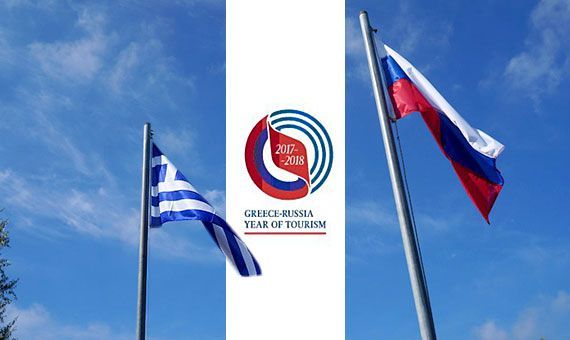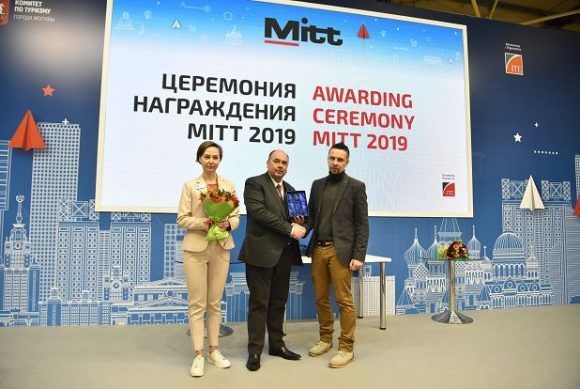ETC: Greece-Russia Tourism Year Fails to Hit the Mark
Although tourism years are expected to stimulate growth between participating destinations, the Greece – Russia Year of Tourism 2017-2018 did not generate the anticipated results, according to the European Travel Commission’s (ETC) latest report, “European Tourism – Trends & Prospects (Q2/2019)”.
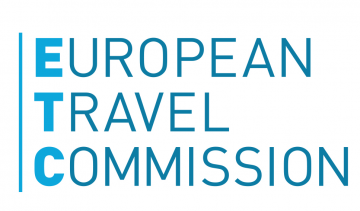 According to the ETC’s special focus on the impact of tourism years which includes data on several such initiatives between destinations, the 2017-2018 Greece-Russia year “failed to yield any significant return during the capacity building and preparation phase”.
According to the ETC’s special focus on the impact of tourism years which includes data on several such initiatives between destinations, the 2017-2018 Greece-Russia year “failed to yield any significant return during the capacity building and preparation phase”.
More specifically, the number of arrivals to Greece declined with limited growth in the post-tourism year period, which was not enough to offset the previous decline.
Tourism years, the ETC report notes, appear to support tourism demand growth in the years immediately before and after.
ETC findings indicate that the Greece-Russia year was an exception.
ETC analysts attribute the poor performance to the impact of the economic recession in both Greece and Russia prior to their tourism year, adding that the effect of tourism years on arrivals appears to be mixed. Findings indicate that the number of arrivals increase in the three years leading up to any set tourism year but not in the year itself.
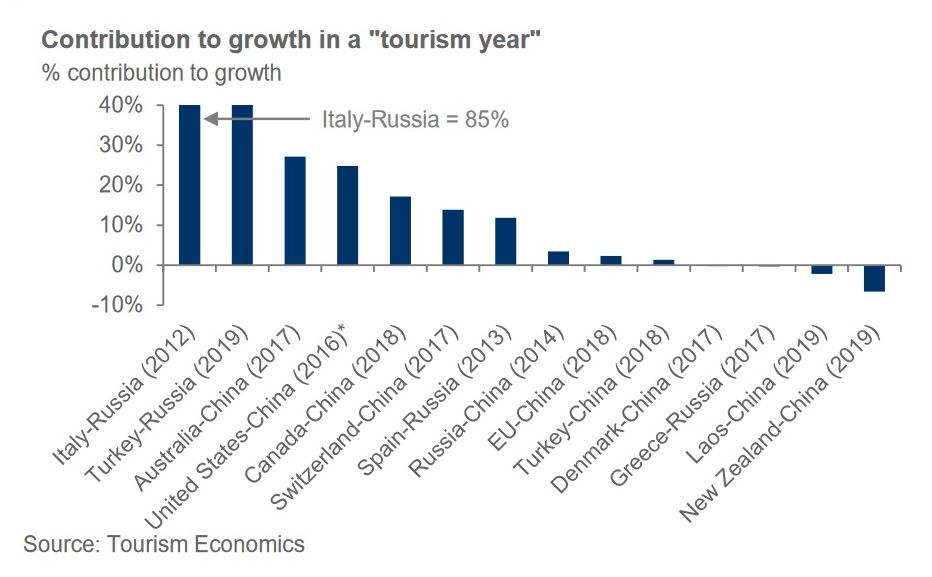 At the same time, tourism years also appear to support sustained tourism demand growth in the years immediately after the events with airline connections remaining in place as well as other industry actions meant to cater to the additional demand expected in the tourism year.
At the same time, tourism years also appear to support sustained tourism demand growth in the years immediately after the events with airline connections remaining in place as well as other industry actions meant to cater to the additional demand expected in the tourism year.
Meanwhile, the Greece-Russia tourism year was also not among the majority of cases cited by the ETC which resulted in higher market share of outbound travel from the source market in question.
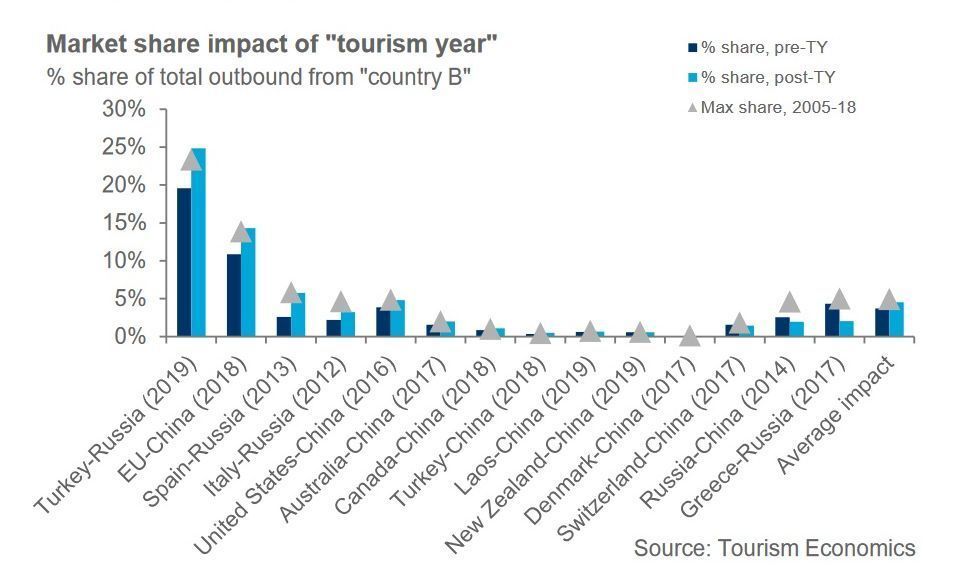 Both Greece and Russia, going through periods of economic crisis, had weak foundations in the run-up to their tourism year, leaving Greece unable not only to capitalize but also to gain back a segment of the market share of Russia outbound lost during the recession years, while facing at the same time strong competition from neighboring Turkey.
Both Greece and Russia, going through periods of economic crisis, had weak foundations in the run-up to their tourism year, leaving Greece unable not only to capitalize but also to gain back a segment of the market share of Russia outbound lost during the recession years, while facing at the same time strong competition from neighboring Turkey.
Why Tourism Years Matter
Besides the evident benefits of forging stronger bilateral ties and tapping into new developing markets, the idea behind tourism years is to drive connectivity growth between countries and help destinations reach out to source markets with particular focus on new markets through direct targeting efforts.
Tourism year activities can identify potential or existing demand in a given source or new market providing valuable insight for policymakers and tourism stakeholders to plan accordingly.
The Conclusion
Despite the ETC report’s findings, Greece appears to be winning over traveling Russians with all the more adding Greek destinations to the top of their holiday agenda.
At the same time Russian cosmonauts have been setting the example by recuperating on Crete and elsewhere, while early bookings by Russian vacationers for travel packages to Greece were up by 15 percent earlier this year, according to data presented during the Moscow International Travel and Tourism Exhibition (MITT) in March. Based on that data, the Greek Tourism Ministry is expecting over one million Russian tourists to come to Greece this year.
Additionally, according to the Russian edition of National Geographic Traveler, Greece was voted second most popular destination for family holidays by the magazine’s readers. And according to the Association of Tour Operators of Russia (ATOR), Greece was among the 10 best-selling destinations last year.
In the meantime, the Greece-Russia Year of Tourism led to other initiatives such as the Greek-Russian Tourism Business Forum, which also facilitated growth. Indicatively, the number of arrivals to Greece in the first five months of 2019 marked an 89.9 percent rise further demonstrating the longer-term effects of tourism year collaborations.
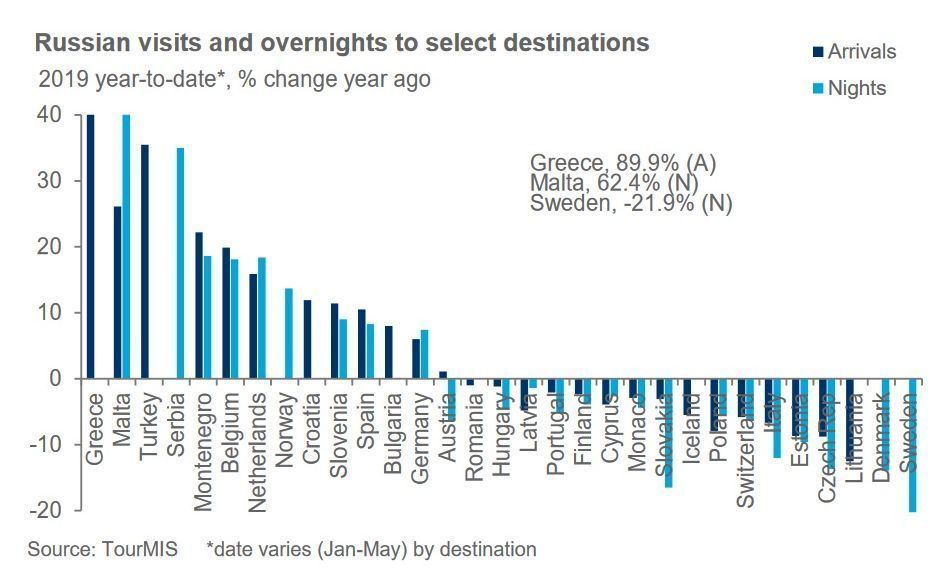 ETC analysts point out that provided the conditions of both destinations participating in a tourism year initiative are healthy, the outcome is expected to boost tourism growth for both. In cases however, where other factors such as weak economies or recessions appear, tourism years ensure travel to destinations does not remain stagnant.
ETC analysts point out that provided the conditions of both destinations participating in a tourism year initiative are healthy, the outcome is expected to boost tourism growth for both. In cases however, where other factors such as weak economies or recessions appear, tourism years ensure travel to destinations does not remain stagnant.

